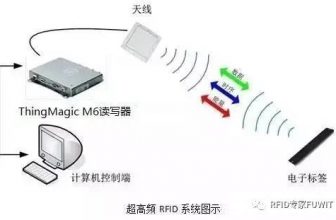
RFID technology helps the intelligent management of textile fabrics
[ad_1]
With the rapid development of economic globalization, traditional processing and manufacturing industries, such as clothing, electronics and other industries, in order to increase production profits, optimize management processes, and continuously improve production efficiency through information transformation. The textile and apparel industry attaches great importance to the supply chain and has continuously shown its advantages in the fierce competition. Textile and garment enterprises are using RFID technology and other information technology because of management needs, and are working hard to promote the improvement of the information management level of textile/clothing enterprises. RFID technology helps improve the intelligent management of textile fabrics.
Starting from cotton planting, the business covers cotton spinning, woven, knitting, yarn dyeing, finishing, garment making, and sales. And they use RFID technology, from cotton picking, processing, to packaging inspection, the production of various places through the Internet timely information communication and visual monitoring, eliminating the time and manpower of manual inspection, its efficiency and market responsiveness are far higher In similar companies. At the same time, many domestic clothing brands are discussing and trying to use RFID technology to solve the increasingly serious problems of anti-counterfeiting/anti-smuggling.

In the production process of many companies, many of them are based on single-piece production, but this model has a big flaw, that is, when a problem occurs in one link, a lot of semi-finished products will be squeezed, which allows managers to The ability to predict, control and respond to the production cycle has become increasingly difficult to meet the requirements of shopping malls with many order standards and short delivery times.
RFID technology has non-contact, fast scanning, high identification efficiency, not easily damaged, suitable for harsh environments, convenient operation, fast reading and writing, large information storage, one card for multiple uses, anti-collision, good security encryption performance, and repetition Features such as usability, tracking and positioning.
Electronic label initialization mainly completes the processing of fabric samples to the warehouse, writes electronic label codes (EPC), prints electronic label information, binds fabric labels and fabrics, binds shelf labels and shelf positions, and verifies the basic tasks before circulation such as electronic labels. . After recording the basic information of the fabric sample and binding the electronic label to the fabric, the electronic label is attached to the fabric sample, and the electronic label can be put on the shelf for circulation after the security code of the electronic label is activated. The system provides a convenient modification function, which can modify the electronic label information and record the modification in the system. For damaged fabric electronic tags or destroyed fabrics, the system provides the function of canceling electronic tags.

Textile fabric management and methods based on RFID technology, including fabric digital identification unit, RFID reading and writing system, and fabric management system. The fabric digital identification unit mainly completes the electronic identification of textile fabrics, uses coding technology to number each textile fabric, and stores the number information in the RFID electronic chip, which is pasted on the fabric in the form of a label; the RFID read-write system uses radio frequency The communication technology realizes the reading and writing of the RFID electronic chip code, and uses the USB communication mode to signal connection with the fabric management system. The fabric management system realizes the registration, retrieval, printing and other related functions of textile fabric information, and realizes the rapid management of fabrics.
The textile fabric management technology of RFID technology solves the inefficiency problems of the existing textile fabric management by manual information compilation, incomplete information, and difficulty in searching.
The application of RFID technology will change the traditional way of warehouse management, automating information collection through RFID electronic tags and terminals. So as to realize the efficient, accurate and real-time collection of goods data, and continuously improve the efficiency of fabric warehouse operations. Create an efficient daily warehousing work such as warehouse entry, exit, exit, and inventory, and establish an intelligent collection platform.
[ad_2]






